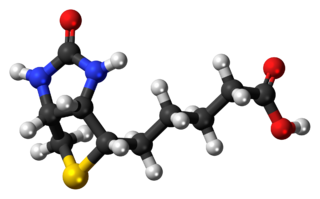Biotin
Biotin s a water-soluble B-vitamin (vitamin B7). Biotin is also commonly called: vitamin H or coenzyme R.
What Does Biotin Do?
Biotin is necessary for cell growth, the production of fatty acids, and the metabolism of fats and amino acids. Biotin aids the body with different metabolic reactions involving carbon dioxide transfer. It may also be helpful in maintaining steady blood sugar levels.
While there is a lot of debate about it, some research has also suggested that Biotin may help strengthen the hair and nails. Although the scientific data supporting these conclusions is a little weak, Biotin is used in different hair and skin products and cosmetics.
Natural Daily Intake and Requirements
The average adult needs 30 micrograms of Biotin per day, although it is suggested that diabetics get more then that.
Biotin naturally occurs in foods, including: whole-grain cereals, wheat germ, whole wheat bread, eggs, dairy products, nuts, Saskatoon berries, Swiss chard, leafy green vegetables, salmon, liver, and chicken.
With the exception of individuals who suffer from Biotin deficiency (which is rare), people get far more then they need from their regular diet to not require Biotin supplements.
Dangers and Side Effects
Biotin is safe and doesn't pose any health risk, even at high levels. To date, there isn't even a risk or worry about exceeding a safe maximum dose.


